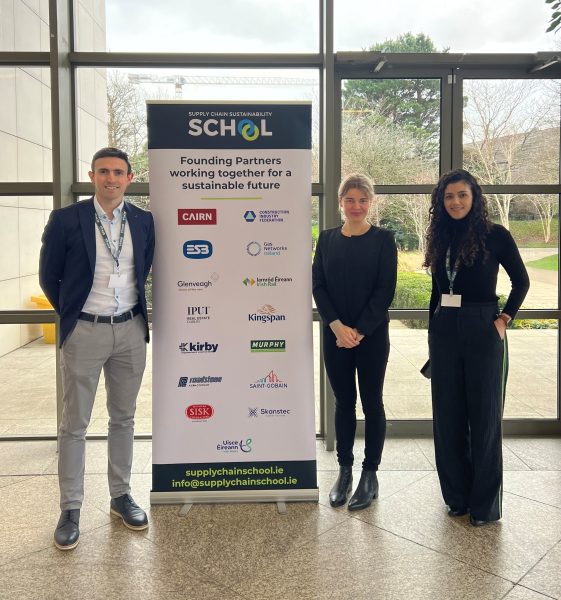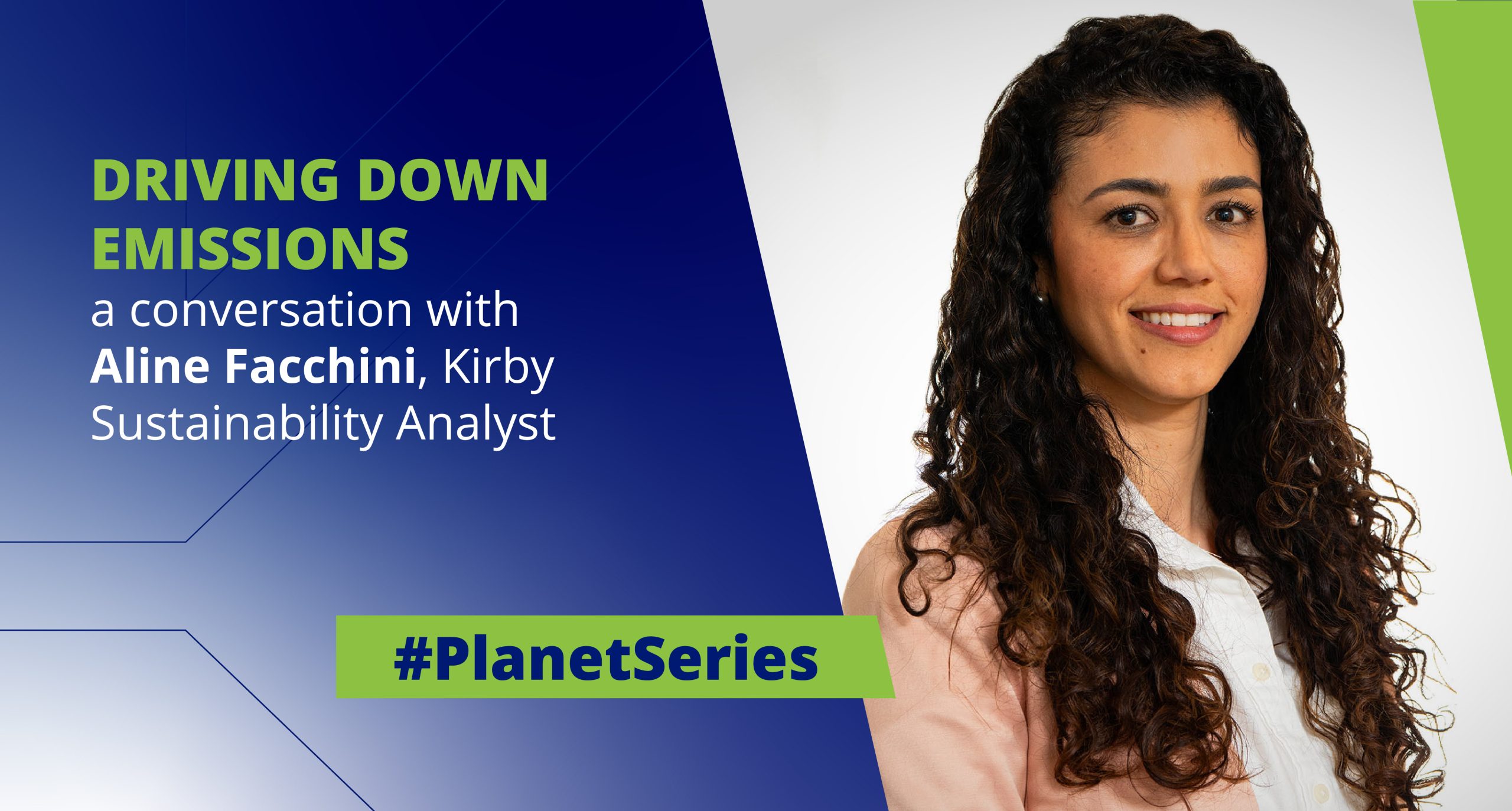As part of our #PlanetSeries, we turn the spotlight on the everyday actions of our people who are innovating, pioneering, and embracing solutions that will leave the planet in a better place for future generations.
This month, we speak to Sustainability Analyst Aline Facchini, whose role is pivotal in ensuring we measure, report, and collect carbon data across our projects, offices and supply chain.
Earlier this year, the Science Based Targets initiative (SBTi) officially validated Kirby’s near-term greenhouse gas (GHG) emissions reduction targets. The milestone saw our approach and commitment to reducing our carbon emissions externally audited and ratified.
As we chart our progress, we speak to Aline about our people’s collective role in ensuring we track and report on our sustainability performance.
Can you explain the targets we have set?
We have set a target of reducing our Greenhouse Gas (GHG) emissions from Scope 1 and 2 by 60% by 2034, using 2023 as the baseline. For Scope 3 in the categories of ‘purchased good and services’ and ‘use of sold products’ we aim to reduce emissions by 35% within the same timeframe.
What are scope 1, 2 and 3 emissions?
- Scope 1 represents emissions from sources that are owned or controlled by the company, such as emissions from combustion in owned or controlled boilers or vehicles.
- Scope 2 represents indirect emissions from the generation of purchased electricity, steam, heating, and cooling.
- Scope 3 emissions are the carbon emissions caused by our business, but not directly from our buildings or vehicles. They come from things like how the products we install are made, how customers use and dispose of them, and even how our employees commute to work.
Could you tell us a bit about your role?
I have a background and degree in environmental engineering and a postgraduate degree in Integrated Management System of Quality, Environment, Occupational Health and Safety, and Social Responsibility.
I initially joined Kirby as a Document Controller in March 2023, but was keen to explore further roles that related to my area of study. Having been given the opportunity to grow my career now, as a Sustainability Analyst, I work across the company to create a framework for reporting and capturing data across multiple areas of sustainability, including greenhouse gas emissions, training, procurement and social value.
Another key part of the role is engaging departments and stakeholders to drive performance, as well as responding to client questionnaires, and completing annual submissions to industry-recognised ESG disclosure and performance rating platforms.
When I first joined the team, I was surprised by how structured the existing policies were. We were already collecting data and now we are consistently reporting across the board. Together with EHS, procurement, and the teams on site, we are creating a framework that allows us to closely monitor our emissions and report on them consistently. This is incredibly important as it allows us to identify areas where we can cut emissions, drive sustainable performance and drive good decision-making.
From emissions reporting to other sustainability-related information, the process is now becoming more streamlined and embedded across departments through data centralisation. This approach supports greater consistency and integration throughout the organisation.
How important is engagement across the business to delivering our sustainability goals?
If people across departments don’t understand the importance of sustainability and how it relates to their activities, I can’t do my job. We are working hard as a team to create a culture of sustainability across the company, and I am placing a huge focus on building strong relationships both internally and externally.
Engagement with other departments is also important to ensure the quality of the data collection and analysis, as well as making sure the data collected is complete and understood, which helps me to make informed decisions.
What made you want to work in sustainability?
I’ve always been passionate about the environment. Working in sustainability means I’m part of the solution. It’s not just a job – it’s how I live my life.
What will you be focusing on in 2025?
I am making great progress in streamlining our GHG emissions data collection and reporting capabilities but, given the size of the business and scale of what we do, this will remain a key focus for me this year. The aim is to automate as much of the process as we can and improve our ability to monitor and analyse data in real time. I will also focus on working with our supply chain to capture Scope 3 emissions and support them in developing their own sustainability plans and deepen collaboration through the Supply Chain Sustainability School.
The school promotes collaboration between industry peers and focuses on building the skills of our supply chain through free training and resources. This year we will drive this aspect of our sustainability plan and work with both our employees and supply chain to raise awareness and consequently drive down emissions.
“Our clients are increasingly focused on sustainability and want transparency on our progress. Kirby is not just responding – we’re leading,” says Jason Doherty, Kirby Head of Sustainability.

What is one thing you would ask people to take away after reading this article?
We can’t achieve our sustainability goals without each other. In my role, I need every one of our team to buy into our vision and support our efforts to drive down emissions. For the supply chain, we need to make sure we are working as one team, with one dream. Sustainability is far bigger than one role or one company – it’s a global effort to ensure we leave our planet in a better place for future generations.
Aline’s journey is just one example of how our people are playing a critical role in building a sustainable future at Kirby.

